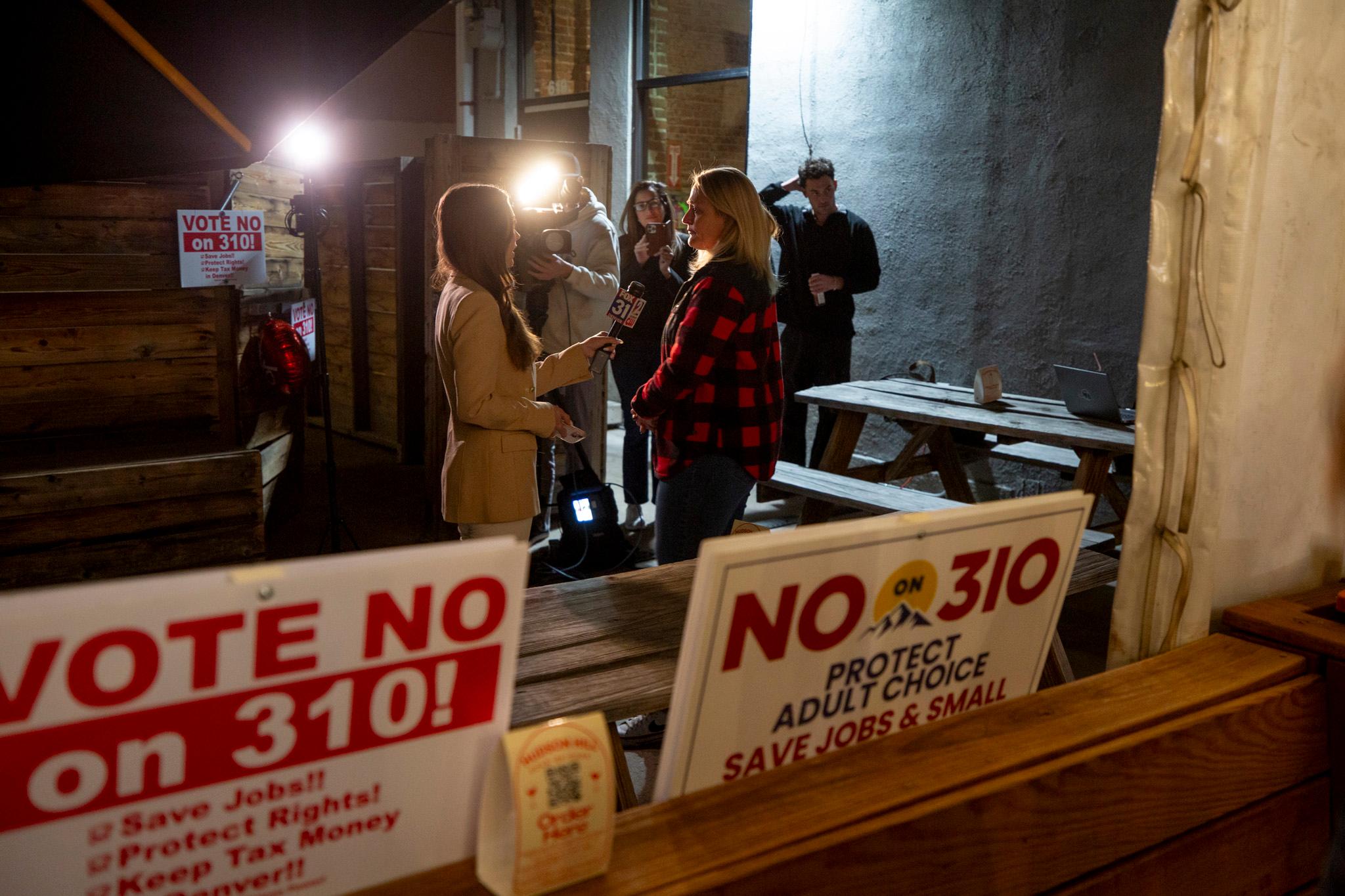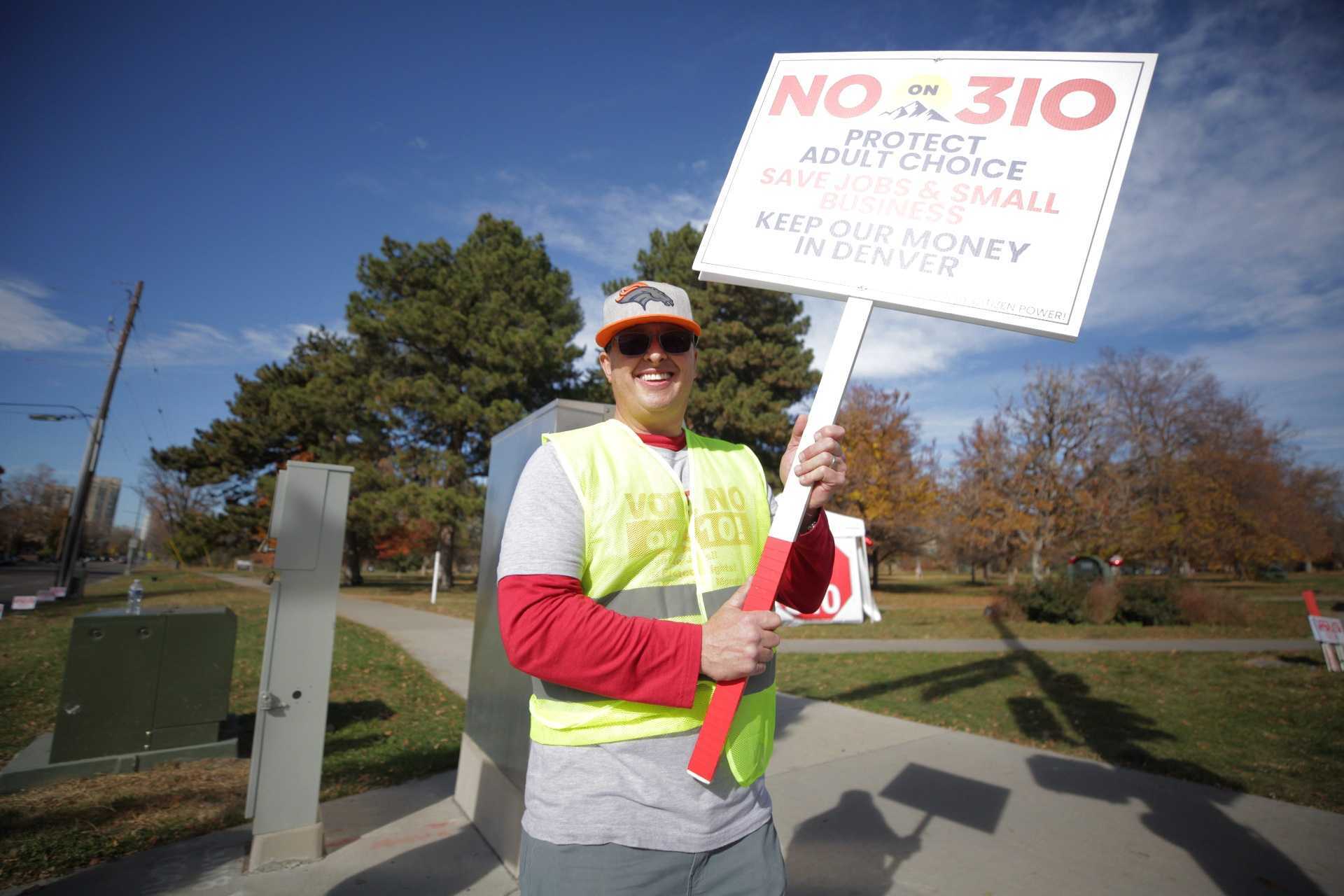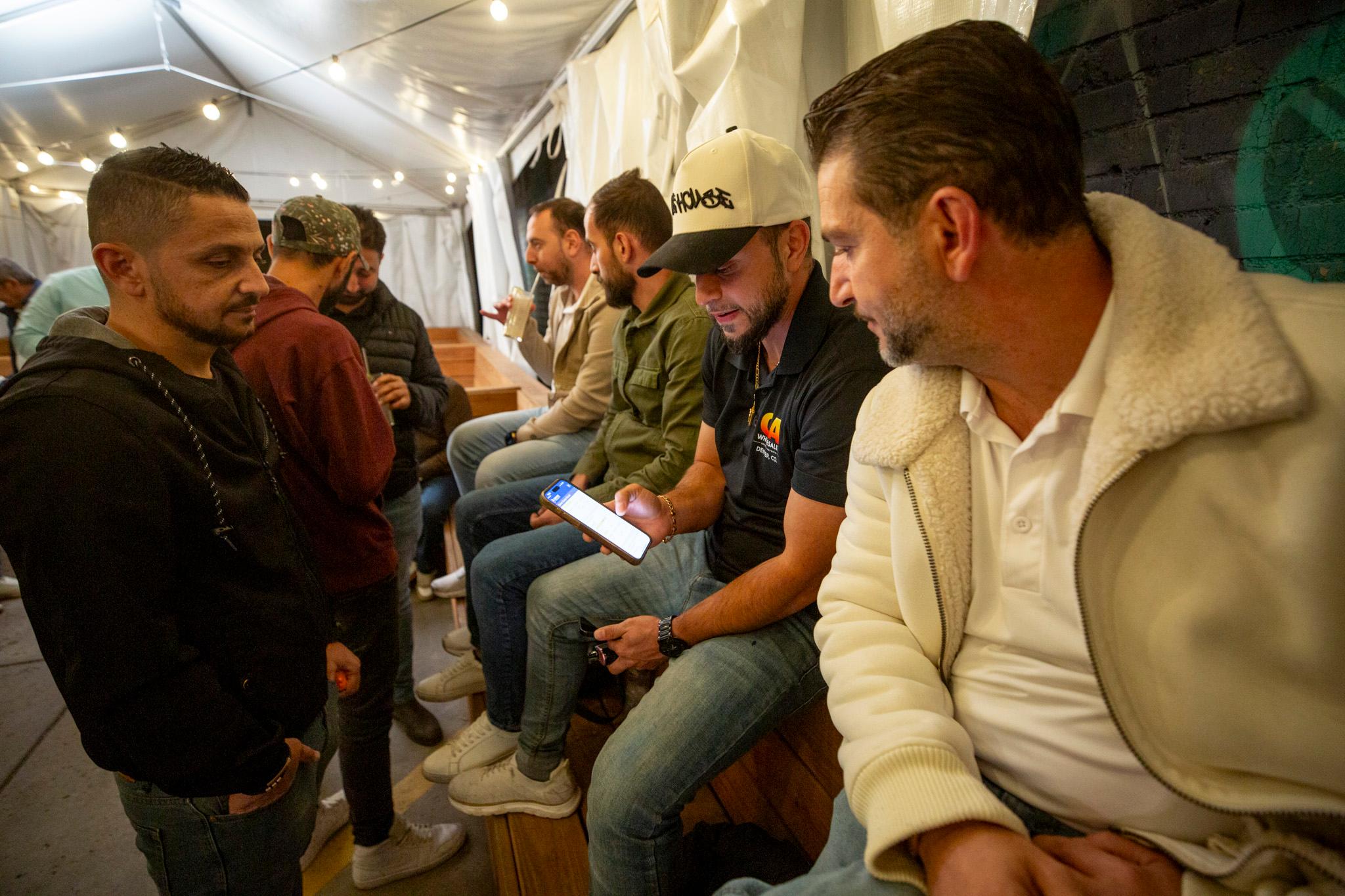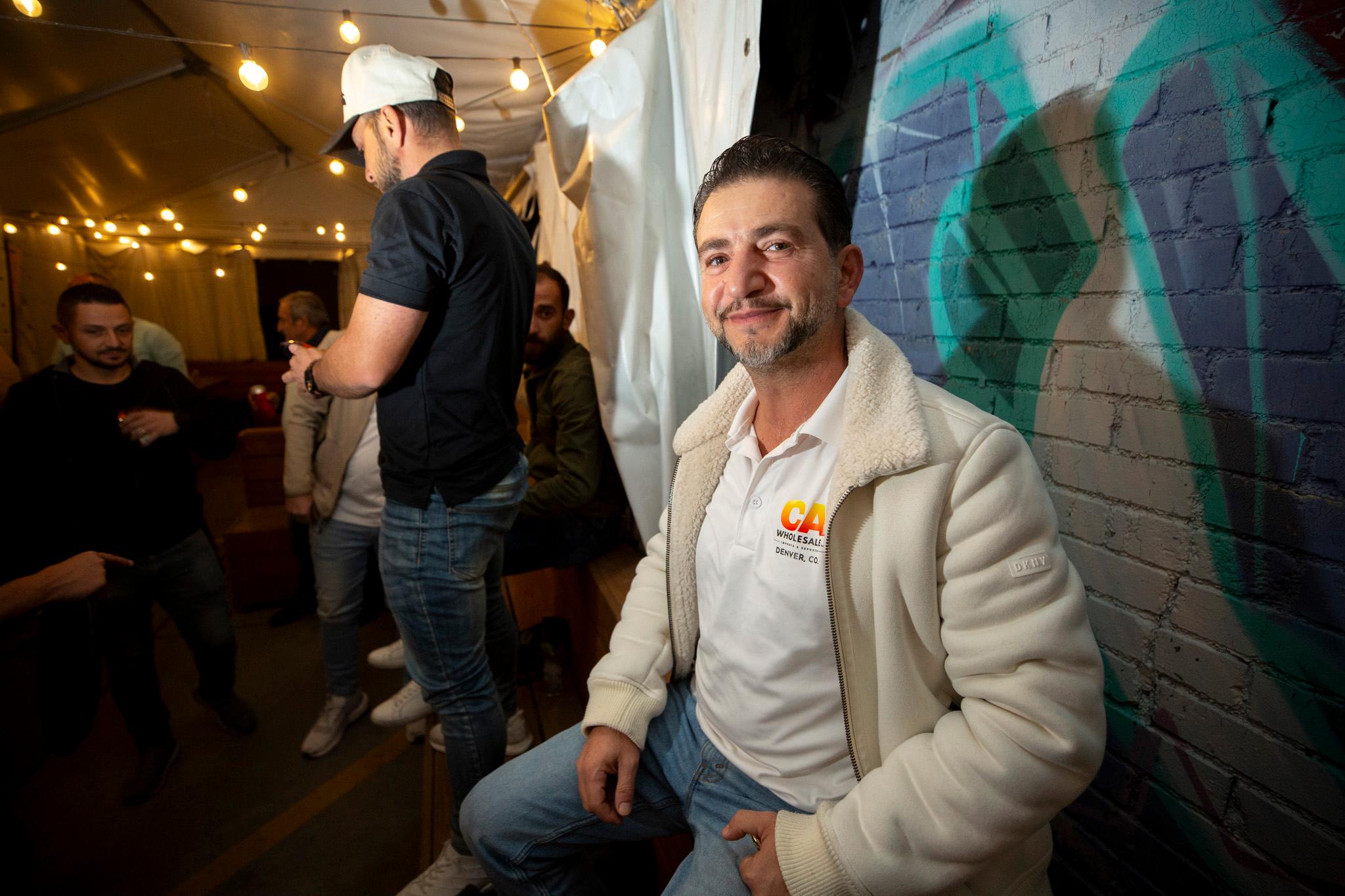On election night, as the first results arrived, a mood of anxious anticipation turned somber at a campaign event for the No on 310 campaign.
Dozens of owners and employees of vape and tobacco businesses gathered at Hudson Hill, a cafe and bar in Capitol Hill. They hoped that Denver voters would decide to keep allowing the sale of fruity vaporizers, menthol cigarettes and other flavored nicotine products.
But it was clear within moments of the polls closing: Voters had upheld the new “flavor ban” the Denver City Council had passed a year earlier — with some 70 percent of voters supporting the regulation.
The vape industry party seemed stunned by the margin of victory that was unfolding. Now, within about two months, they’ll have to pull products like e-cigarettes, cigars, cigarillos, and smokeless tobacco, available in flavors like strawberry, vanilla custard, cotton candy, and mint or menthol from their shelves as city inspectors fan out to enforce the new law.
The city will begin enforcing the ban in January.
“It will be very hard, yeah, especially with the bad economy we experience now,” said Wally Albarghouthi with CA Wholesale, a distributor that supplies products to vape shops in the Denver metro area.
He said the loss of a popular product like flavored vapes will add to mounting financial challenges for small, often mom and pop, businesses like vape shops and convenience stores, many of which are owned by immigrants. The ban affects some 575 retailers that sell the products in Denver.

“I know a lot are thinking to move out of the state and some of them maybe out of the country too,” said Albarghouthi, who was born in Kuwait, then moved to Jordan and later to the U.S. “I don't know if they're serious, but they're like, ‘We moved to this country for a few reasons that are not available anymore now, so might as well just leave.’”
A spokesperson said the city’s health and environment agency will communicate directly with licensed tobacco retailers to ensure they are aware of upcoming enforcement deadlines.
Phil Guerin, who owns a vape shop on Colfax, helped lead the effort to gather thousands of petition signatures to put the measure on the ballot. He has been thinking over his options for days since the election.
“I don't know if I get up and move,” said Guerin, who owns shops in four other locations outside Denver. “There's not a lot of quit in me. So I have two options. I fight for what I believe in or I go and I help another community thrive.”

Bloomberg declares a “clear message” in Denver
The campaign in support of the flavor ban drew some $6 million in contributions, nearly ten times more than the anti-ban campaign. The vast majority came from Michael R. Bloomberg, the billionaire philanthropist and former New York City mayor. He gave $5 million in support of Denver Kids vs. Big Tobacco. It’s the most ever given by an individual to a Denver municipal race, according to a city spokesperson.
“Voters in Denver sent a clear message to the tobacco companies: stop targeting children,” Bloomberg said in a statement emailed to CPR.
“Flavored tobacco products are designed to hook young people early and keep them using nicotine for life – and voters know it,” continued Bloomberg, founder of Bloomberg L.P. and Bloomberg Philanthropies, who also is the WHO Global Ambassador for Noncommunicable Diseases and Injuries.
“The victory in Denver is the latest example of how communities can fight back against the tobacco industry's attempts to sell addiction to kids – and win,” Bloomberg said.
The campaign to repeal the ban had strong national industry support in the early part of the fight, including when petition signatures were being gathered, but it ultimately didn’t come close to matching Bloomberg’s contributions late in the campaign.
The group Citizen Power! received $75,000 contributions from multinational corporations Altria and Philip Morris International, according to campaign filings with the city.
PMI is building a plant to make Zyn nicotine pouches in Aurora. A PMI spokesman called the outcome of Denver’s vote “disappointing.”

"It restricts the options available to adult smokers seeking effective alternatives to combustible cigarettes, the most harmful form of nicotine consumption," said PMI spokesman Samuel Dashiell via email. “The FDA has recognized the public health benefits of several non-combustible nicotine products, yet local policies that limit access to these smoke-free options risk driving people back to cigarettes.”
He said the company is committed to working collaboratively with policymakers, public health experts, and community leaders on “responsible regulation that limits youth access and appeal while ensuring adults who smoke have better nicotine options.”
Meanwhile, the federal government has slashed funding for health agencies, including the Office of Smoking and Health. The long-term impacts on smoking and vaping are unclear, but advocates fear the federal role in outreach, education and surveillance will be greatly diminished.
Is a statewide push next?
A decisive victory by the yes side may set the stage for the next fights, perhaps in other cities or even statewide. Earlier attempts to ban flavored nicotine statewide faded in the face of opposition from Gov. Jared Polis, who said the issue should be handled at the local level.
Opponents of the ban said the potential for a state ban was one reason they worked hard to stop the one in Denver.
“Denver goes, Colorado's gonna go. And that's why we're trying to not let Denver go,” said Rami Sawaged, owner of CA Wholesale, the week before Election Day.
At a get out the vote event in Denver last month before the vote, CPR asked a pair of Democratic candidates for governor about a statewide flavor ban. One said he’d back it, the other said he’d take a look.
“I would support that,” said Phil Weiser, Colorado’s attorney general, who sued vape company Juul and won a $32 million settlement. He noted other speakers at the event spoke passionately about losing family members to smoking-related illnesses. “The data is clear. This was a strategy for (the industry) to make money harming our public health. I'll fight back with every tool I can.”
“I haven't looked at it yet, but I'd certainly be interested in considering that strongly,” said U.S. Sen. Michael Bennet.
Backers of the Denver flavor ban, led by national anti-tobacco advocacy group Campaign for Tobacco Free Kids, said they hoped a statewide ban will follow.
“We want all kids statewide to have the same protections that the cities that we've partnered with thus far have,” said Jodi Radke, its regional director.
Other cities could now follow Denver’s lead, she said.













